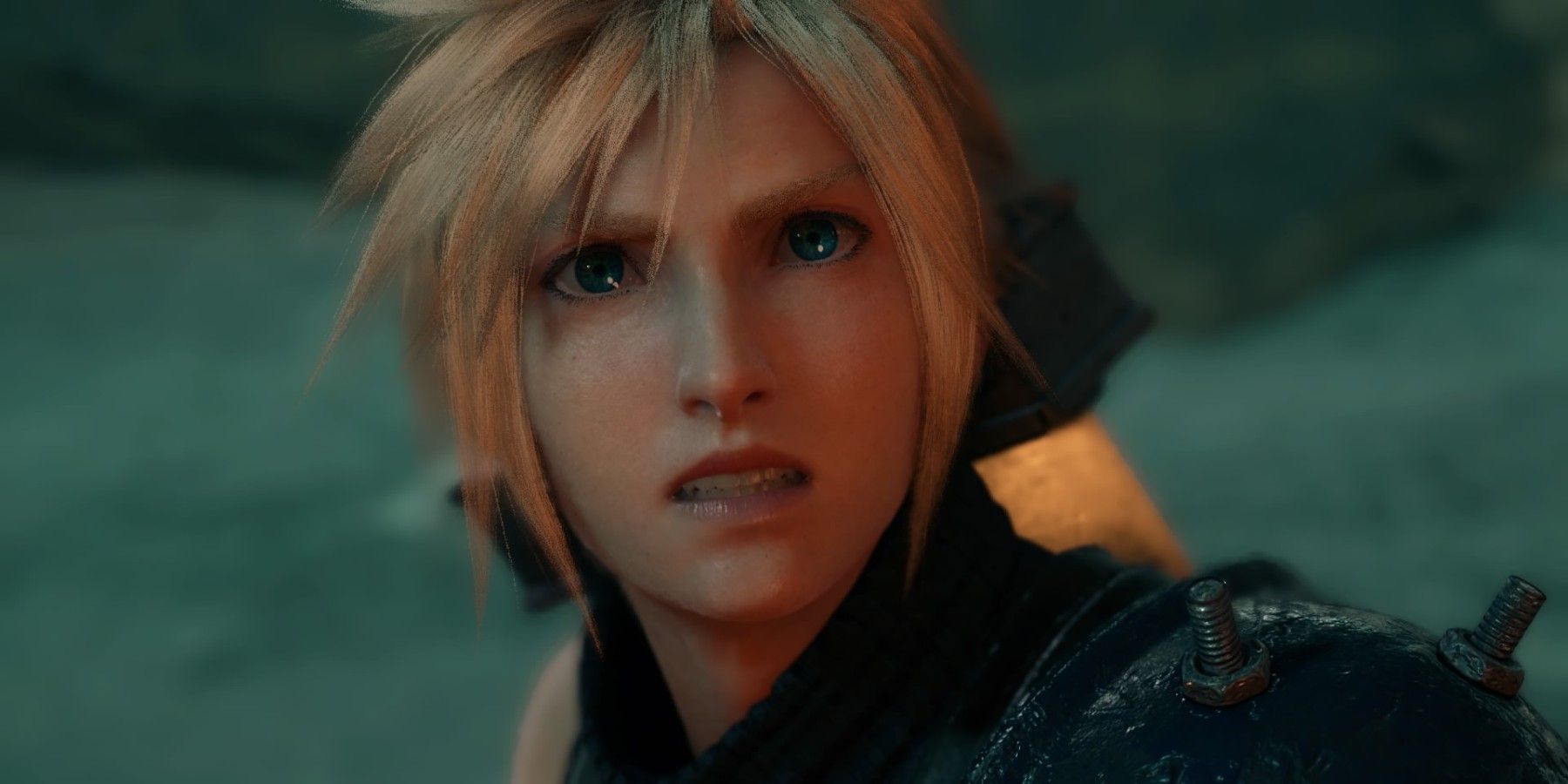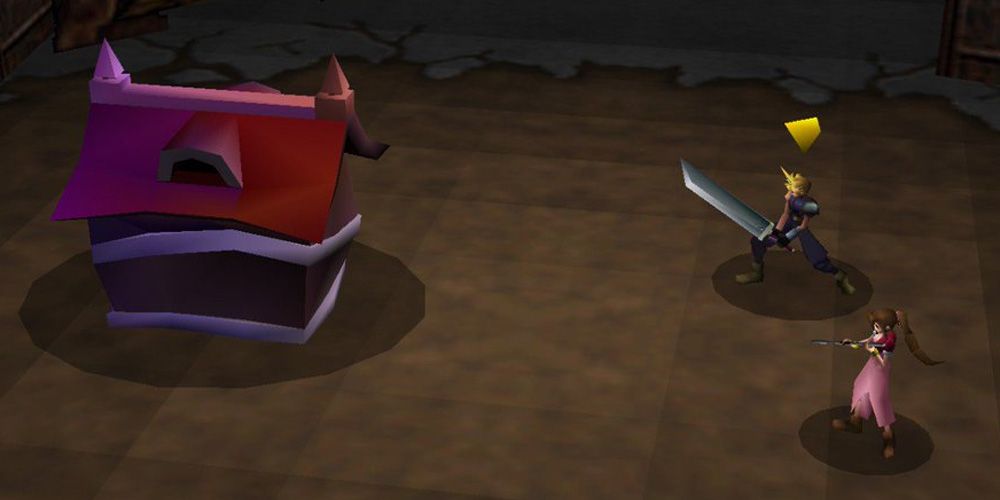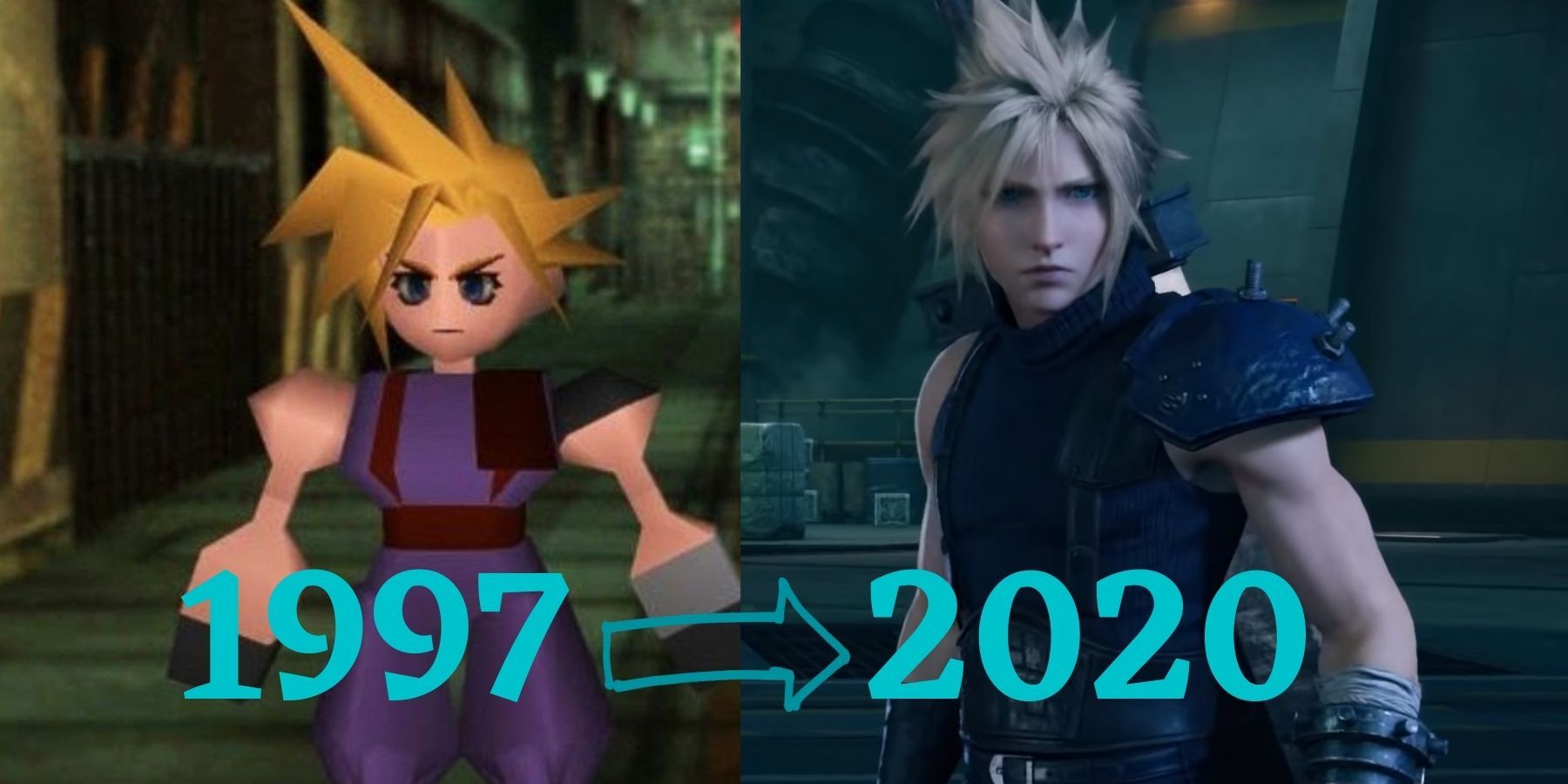Final Fantasy 7 Remake was one of the most hotly anticipated games prior to its release in 2020. For over two decades, fans had clamored for a modern reimagining of the classic 90s JRPG title, which is regarded as one of the greatest and most influential video games ever released.
Final Fantasy 7 Remake does a fine job of upgrading the original’s ageing graphics and turn-based combat, and the critical reception to the game was largely positive. However, some fans were less impressed with the long-awaited title, believing it stumbled into some of the classic pitfalls that plague many remakes.
Final Fantasy 7’s Long Quest to be Remade
The original Final Fantasy 7 was released in 1997, beginning development as a 2D SNES game before being developed into a 3D PlayStation title that could take advantage of the new CD-ROM hardware available. The adventure was unprecedented in its scale, spanning three separate discs, and was heralded as a masterpiece upon release. The original Final Fantasy 7 has since gone on to sell well over ten million copies and achieve worldwide acclaim.
The game’s success meant that rumors of a remake by developer Square Enix have circulated since the early 2000s. A PS2 title was originally planned, but scrapped because of competing projects, including other Final Fantasy sequels. A PS3 tech demo of the original game’s opening sequence was showcased at E3 2005, fueling further hype around a remake for the latest console generation. Once again, expectant fans had to wait, with Square flat-out denying that a remake was in production.
However, the original game’s creators still entertained ambitions of crafting a remake. Director Yoshinori Kitase realized that its themes of economic inequality and environmental concerns were still hugely resonant, and writer Tetsuya Nomura regretted that certain areas in Midgar were inaccessible to the player, wanting an opportunity to provide players with a better sense of the city and its culture. Eventually, producer Shinji Hashimoto approached Kitase, Nomura and other members of the original team about developing a remake, and the project began development in 2015 with Nomura at the helm.
Problems with Final Fantasy 7 and Other Remakes
Remaking a game over twenty years old brings a number of challenges. A new generation of gamers brings with it a new set of conventions and expectations, and while modern hardware provides unprecedented opportunities for amazing visuals and cinematic sequences, it also brings increased demands. The Final Fantasy 7 Remake therefore made a number of changes from the original game, not all of which were appreciated by fans.
The first, arguably biggest, issue is the perception of padding. Rather than remake the entire game, the new release doesn't even encompass its first third, finishing at the point where the main characters leave the iconic capital city, Midgar. Some fans have questioned this decision, believing it to be an example of padding, with Square allegedly prioritizing the anticipated profits from future sequels.
Some players felt this issue was exacerbated by padding within the actual gameplay. If Square had greatly increased the size of the game world in order to tell a better story, then a remake split over multiple titles was understandable, but Final Fantasy 7 Remake also contains a large number of repetitive side quests and other gameplay elements that some players found long-winded and tedious.
Although the back stories of some NPCs were greatly expanded, this was also not universally well received. Some fans felt that Final Fantasy 7’s famous narrative had become muddled and poorly paced in its retelling, and that unnecessarily dwelling on bit-part characters was harming the narrative.
There were also some issues with the use of the game’s iconic villain, Sephiroth. Despite being one of the most famous and popular video game antagonists of all time, Sephiroth actually doesn’t appear in the first game until almost a third of the way through. Even then he is presented only through allusion, with characters talking about the near-mythical warrior in hushed and fearful tones, making him seem like a truly insurmountable foe. Players meet the corpses of Sephiroth’s fallen enemies, including a giant snake that had previously proved impossible for their characters to defeat, long before they actually meet the genetically engineered super-soldier himself.
At one point, in a flashback sequence, the player fights alongside Sephiroth against an enormous dragon. The player deals a pitiful amount of damage, and is promptly attacked and eliminated from the battle. Sephiroth calmly steps forward to dispatch the beast with a single slice of his legendary sword. This is masterful storytelling, and has the player absolutely convinced that Sephiroth is unbeatable before they’ve even laid eyes upon him.
In Final Fantasy 7 Remake, Sephiroth appears within the first hour of gameplay, and repeatedly during hallucinations suffered by the protagonist Cloud. Although Sephiroth is presented as an imposing and frightening threat, the over-exposure to the character quickly inures the player against the initial fear caused by his appearance. Such narrative missteps are surprising when other recent remakes have made excellent and sparing use of their main antagonists, such as Resident Evil 2 holding back the reveal of Mr. X for a significant portion of the game.
Despite these issues, Final Fantasy 7 Remake still went on to become the fastest-selling PS4 exclusive, shifting a staggering 3.5 million copies in its opening three days. The PS5 upgrade of the game, Final Fantasy 7 Remake Intergrade, is already available, and the next part of the story is in development. Fans of the franchise look forward to finding out whether the sequel will iron out some of the imperfections of the first installment, in what is undoubtedly the biggest remake project in video game history.
Final Fantasy 7 Remake is available now for the PS4 and PS5.



